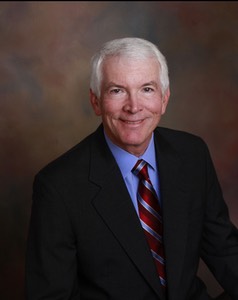- The FTC’s Ban on Noncompetes Might Die in Court, But the Legal Tide Still Runs Against Them
- Can You Cash in By Claiming a Trademark on a Trending Nickname, Slang Word, or Phrase?
- Businesses Beware: Using AI to Create Fake Celebrity Advertisements Can Get You in Trouble
- Virginia’s New Law on College Student-Athlete NIL: Is Virginia a Leader or Irrelevant?
- Would a U.S. Ban on TikTok Stand Up In Court? What Can Businesses Do if a Ban is Enacted?
Latest Blog Posts
Will the Redskins be Able to Keep Their Name?
Posted on October 23, 2013.
The name of the Washington Redskins was born out of trademark concerns in 1933. Eighty years later, the team is still wresting with trademark problems.
The Washington Redskins were the Boston Braves in their inaugural year, 1932. They played in Fenway Park in Boston, which also was home to two professional baseball teams, the Boston Braves (now the Atlanta Braves) and the Boston Red Sox.
To avoid confusion (which is a trademark problem) with the baseball-playing Braves, the owner of the football team changed the team name in its second season to the Redskins.
While disputed, it appears this name was chosen because the head coach, Lone Star Dietz, was part Sioux and because the team had several American Indian players. The team moved to D.C. in 1937.
Fast forward to 1992. American Indian groups were attacking the Redskins name. They filed a petition with the United States Patent and Trademark Office (“USPTO”) to cancel all of the team’s trademark registrations that contain the word Redskins, using the argument that the name is disparaging.
The USPTO cancelled the registrations, but the Redskins won a reversal of that decision in the federal courts. The courts held that the American Indian plaintiffs had not proven that the Redskins name was disparaging and that they also waited too long to file their challenge.
The battle continues today, both in the court of public opinion and in the USPTO. More American Indian groups are pursuing administrative litigation in the USPTO to cancel the Redskins federally registered trademarks, this time using as plaintiffs people who turned 18 right before filing suit, to get around the earlier ruling that they waited too long. Although this new challenge was filed in 2006, it probably won’t be decided until next year.
Regardless of whether the American Indian plaintiffs win those cancellations, it won’t end the dispute. Registering a trademark just strengthens trademark rights. Even without registrations, the team would still have powerful “common law” trademark rights − rights sufficient to keep other football teams from using the name Redskins.
The team would still be able to call itself the Redskins. It doesn’t need trademark registrations to use the name. There is no law against using that name, and, even if such a law was passed, it would not survive First Amendment scrutiny.
Thus, as long as the team owner, Dan Snyder, can withstand the opinion heat, his team can keep using the Redskins name.
Also, the American Indian plaintiffs face a big hurdle in trying to cancel the trademark registrations. While the name Redskins is not politically correct, under the law, the issue is whether the name was derogatory in the eyes of a substantial component of the American Indian community when the Redskins trademarks were registered at the USPTO, which occurred between 1967 and 1990, with the most important registrations occuring in 1974 and 1978.
While these new plaintiffs can put on new proof of such a perception during those times, the last set of American Indian plaintiffs failed to muster a sufficient case.
Also, there are a few interesting nuggets in the USPTO records about this trademark fight.
First, the American Indian plaintiffs have not attempted to cancel the Redskins logos that don’t contain the word Redskins. The famous emblem on the side of the helmet is unassailed. I don’t know why.
Second, the Redskins attempted to register Skins as a trademark in the late 90’s but abandoned the effort. Was that just an attempt to capture a common team nickname or was it a name fall-back plan? Columnist Charles Krauthammer recently suggested the compromise that the team change its name to the Skins.
Third, the panel of USPTO administrative judges who will decide this case includes a judge who has sided with attacks on trademark registration applications as being disparaging to ethnic groups.
This year, she wrote the opinion denying registration for the trademark “The Slants” for a rock band composed of Asian men. In 2008, she wrote an opinion denying registration of the trademark “Heeb” for a website and clothing items, even though the company is run by Jews and targets a Jewish audience.
While this legal wrangling entertains trademark geeks like me, the future of the team name will be determined by how people vote with their wallets. Given the enthusiasm we saw in Richmond last summer over the Redskins training camp, I think I know how the election will come out.
Written on October 23, 2013
by John B. Farmer
© 2013 Leading-Edge Law Group, PLC. All rights reserved.




